Tour de France: Mark Cavendish carves history with all-time record-breaking win on stage 5
Astana Qazaqstan sprinter sets new mark with 35th stage victory at Tour
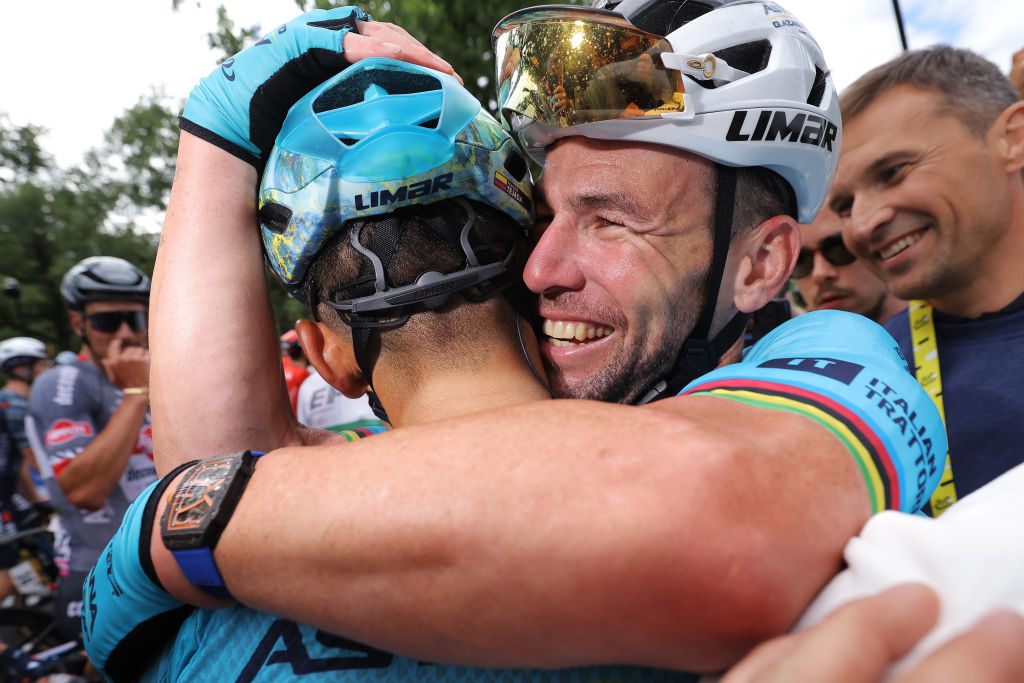

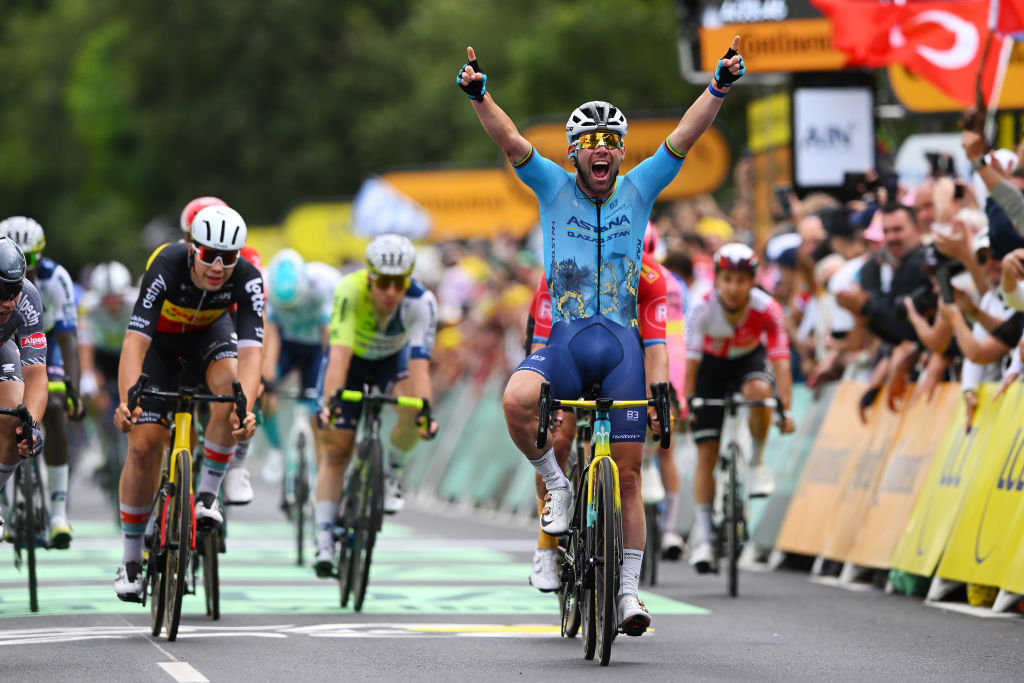
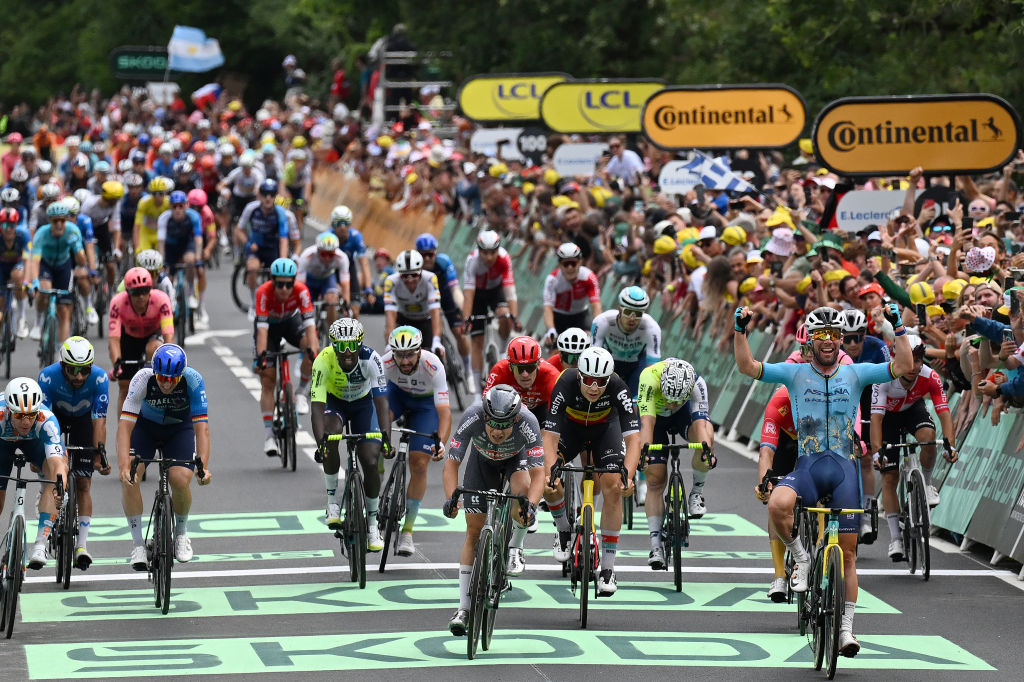
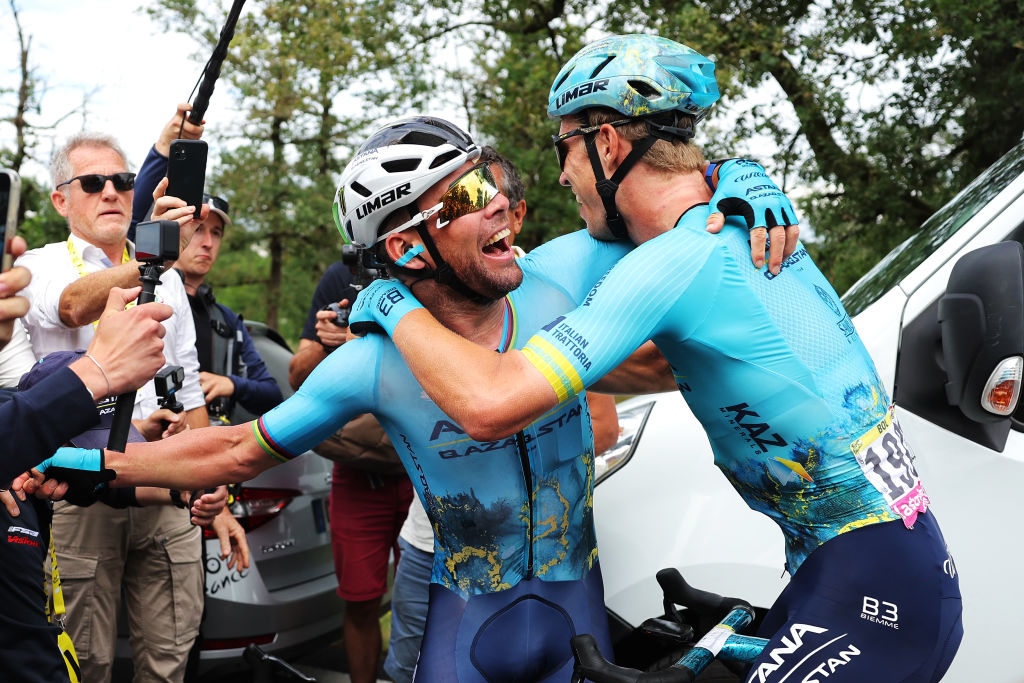
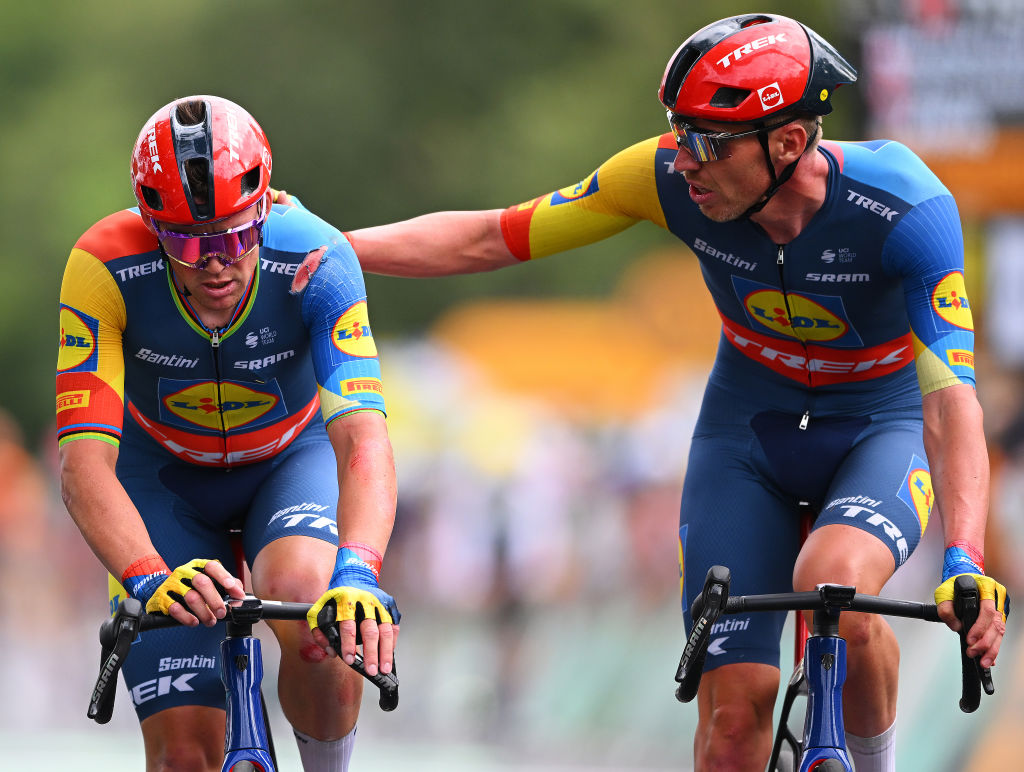
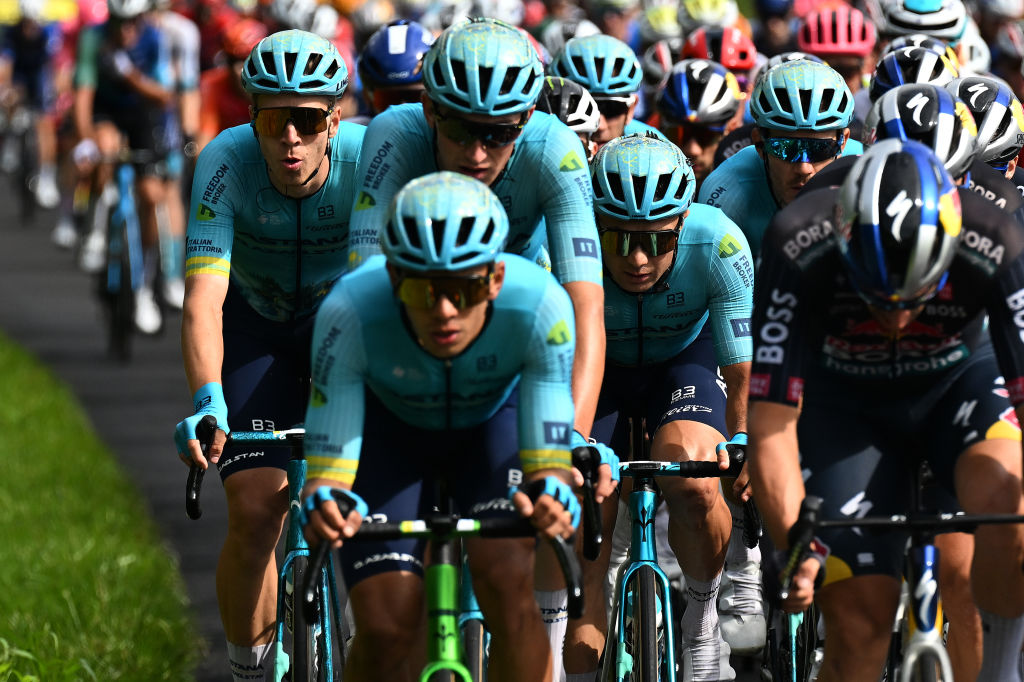
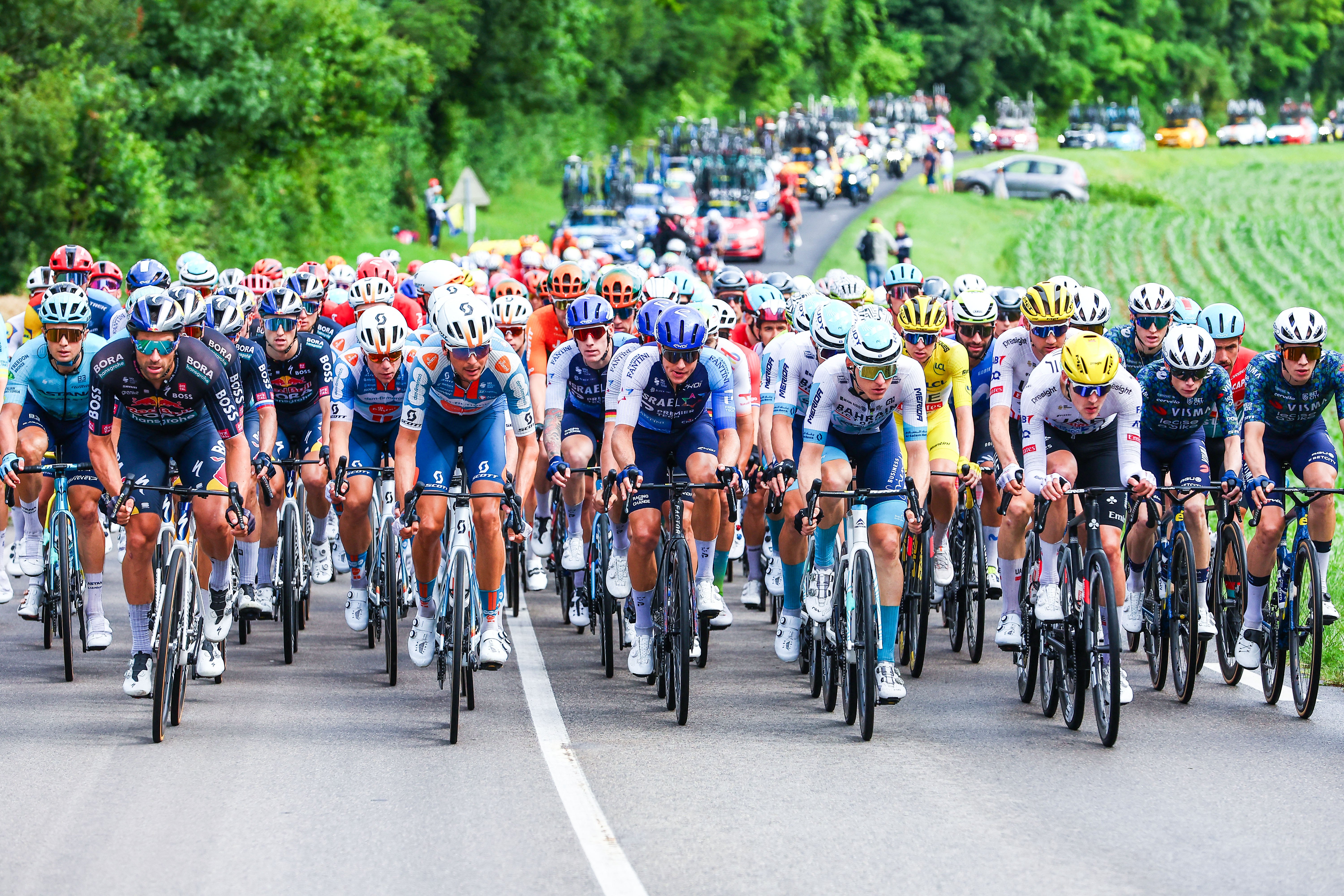
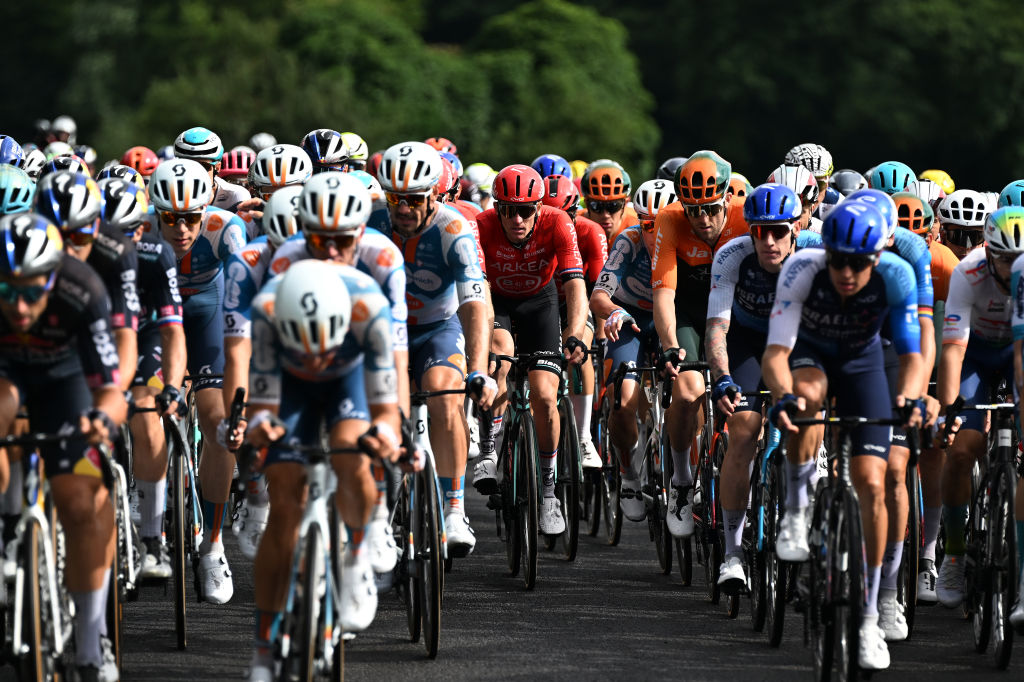
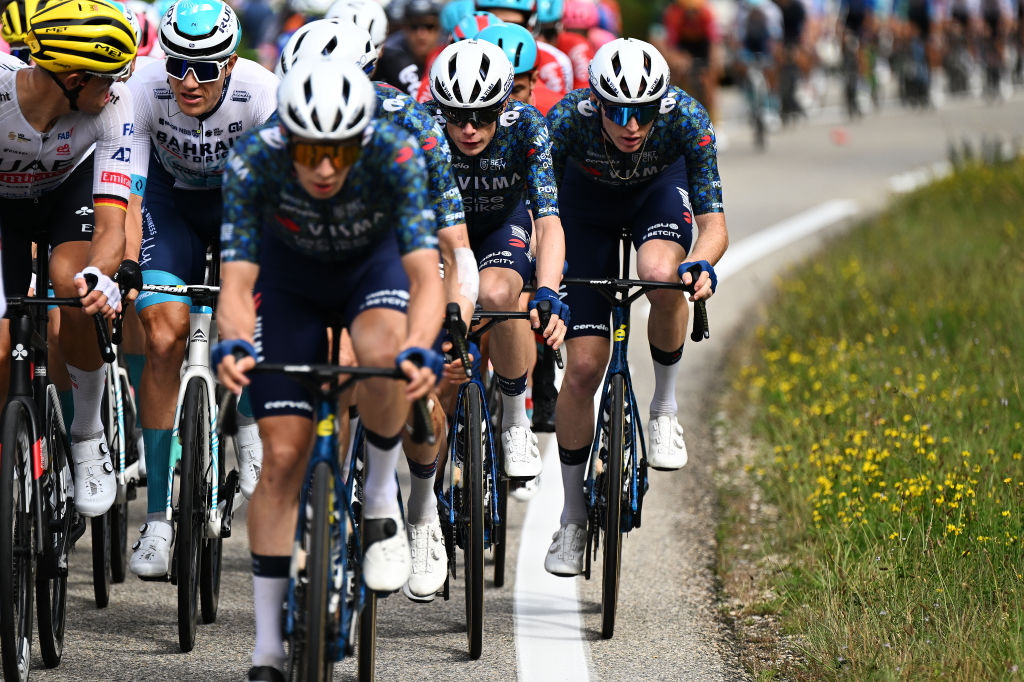
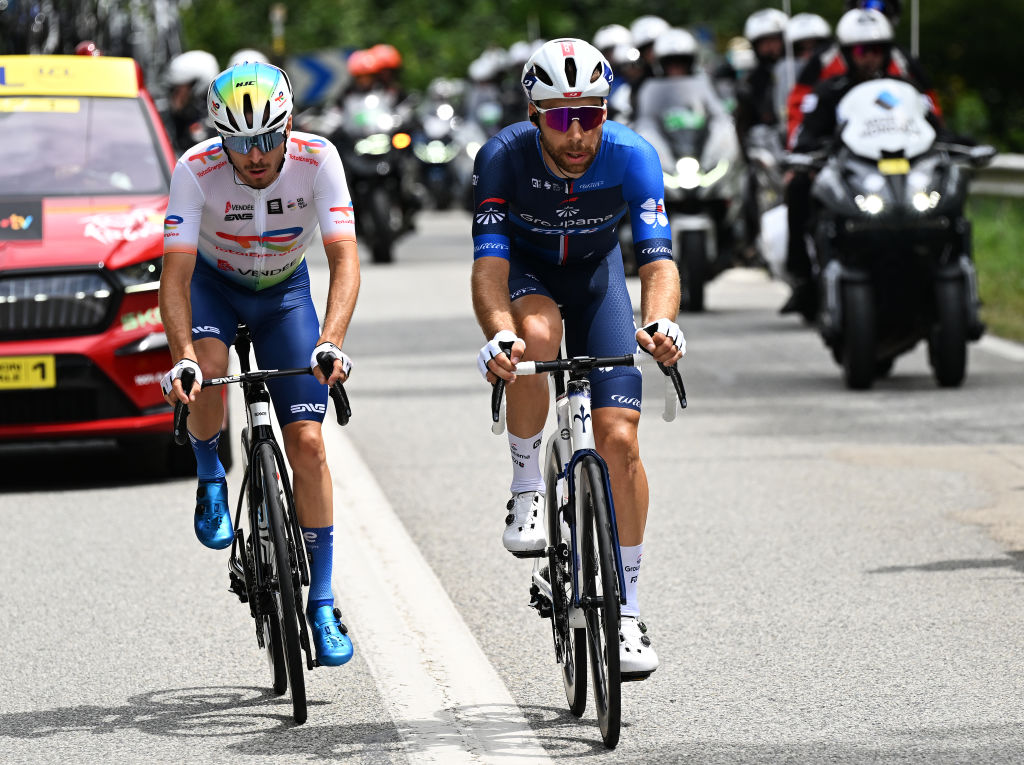
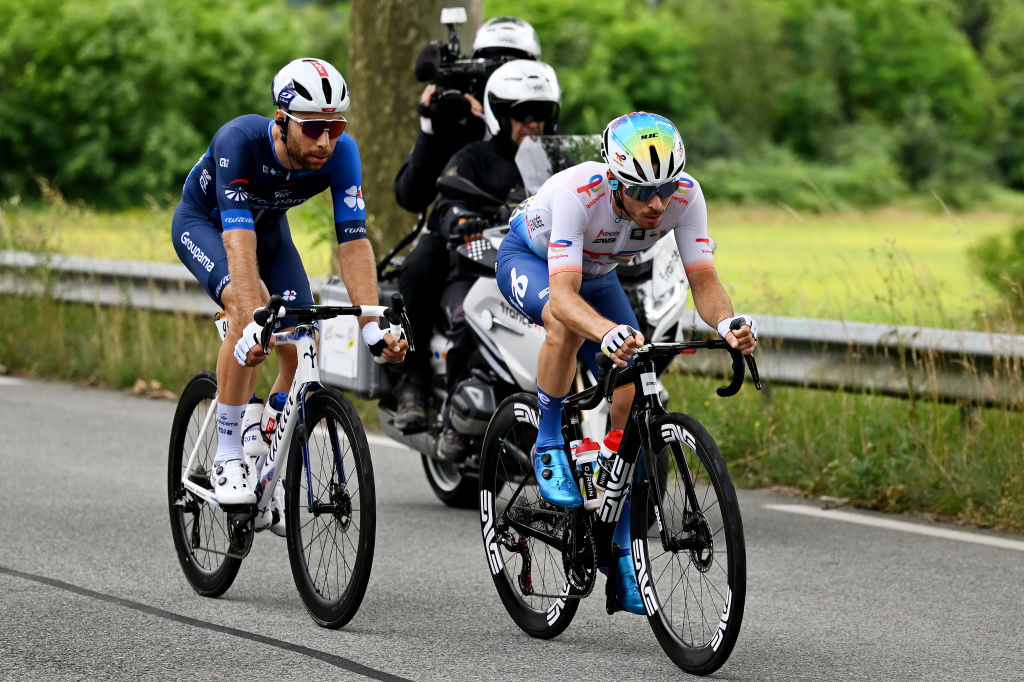
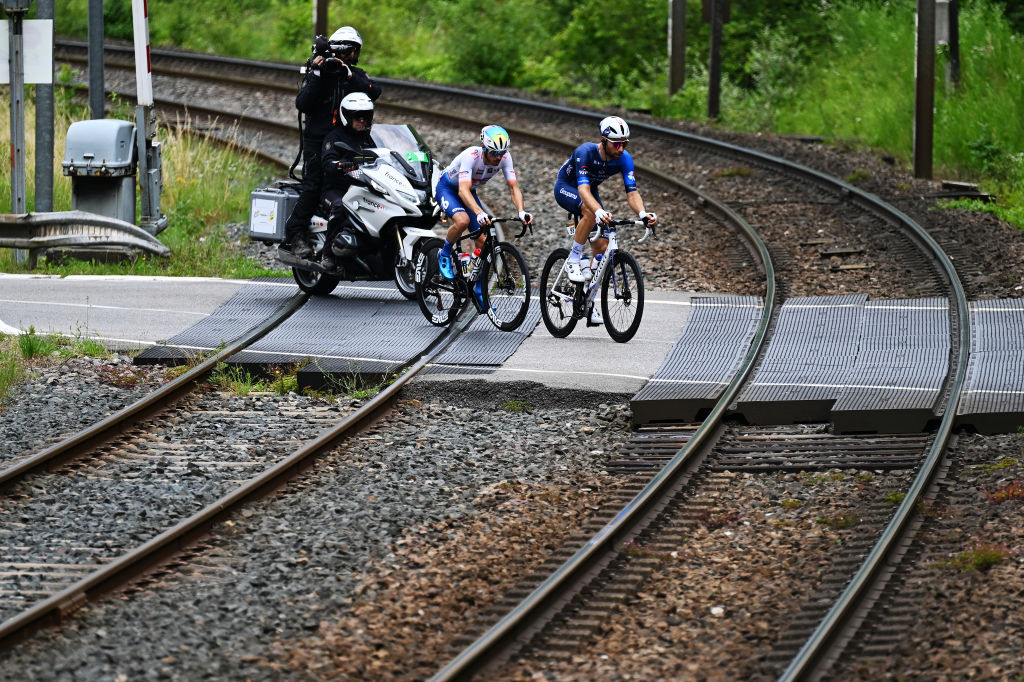
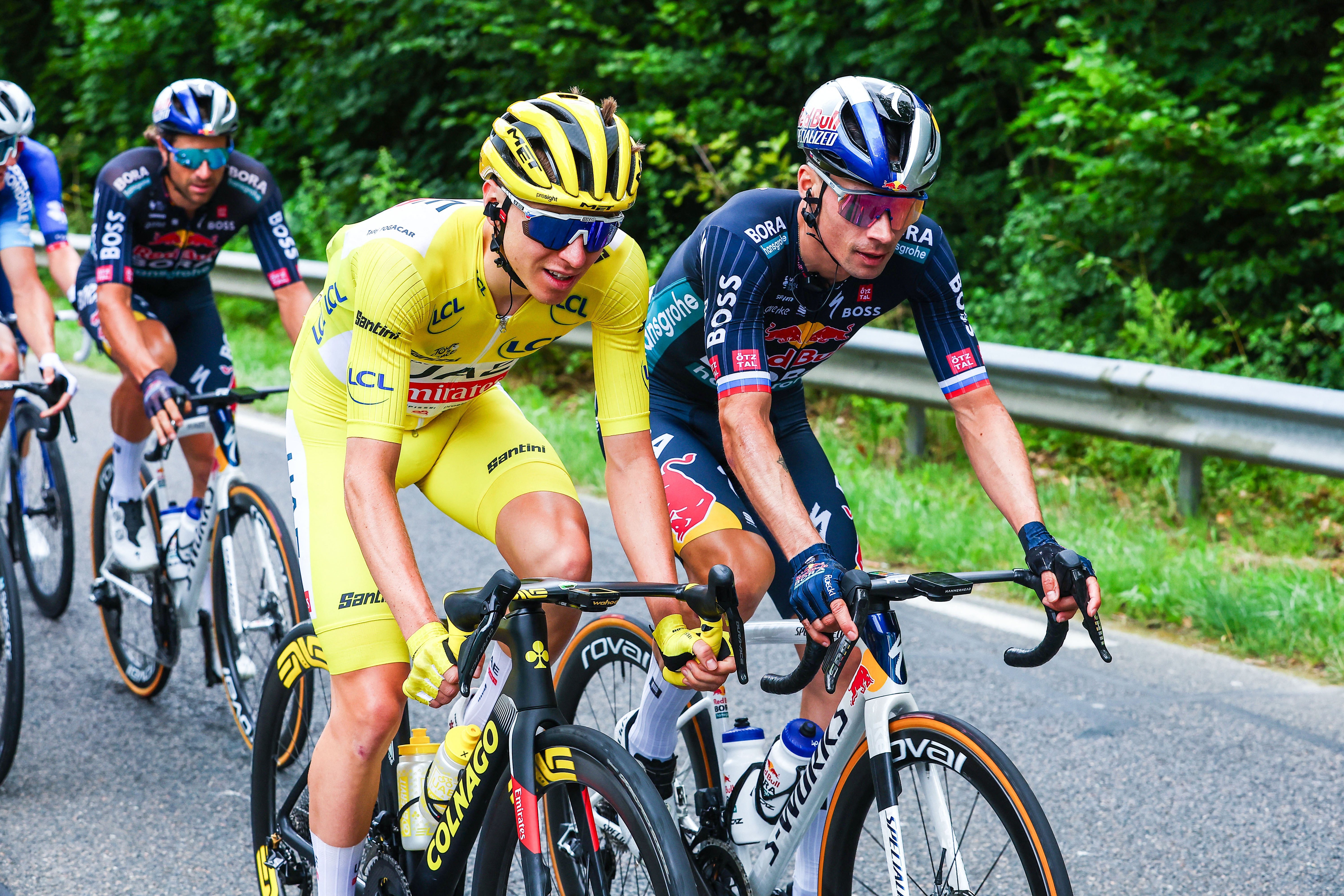
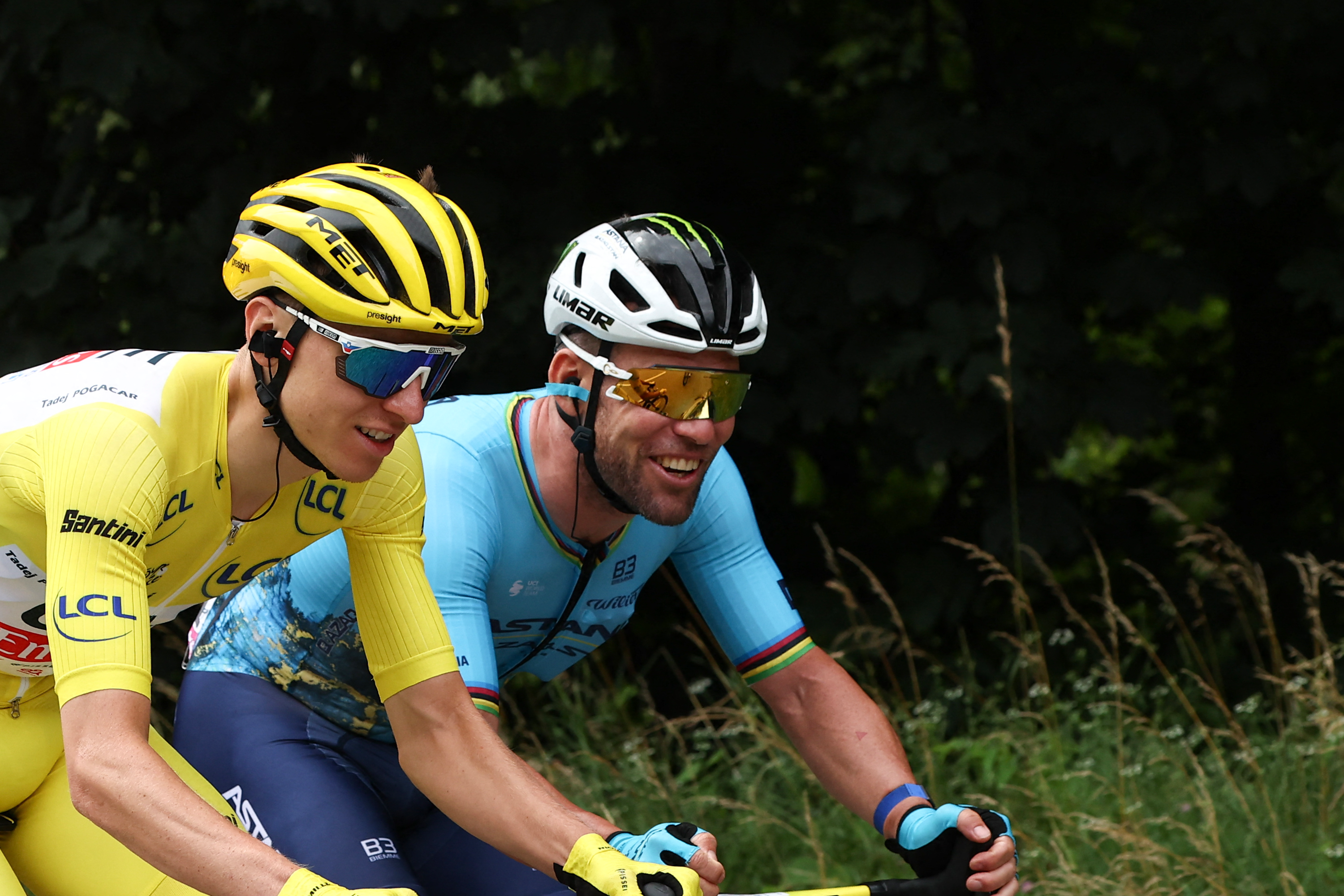

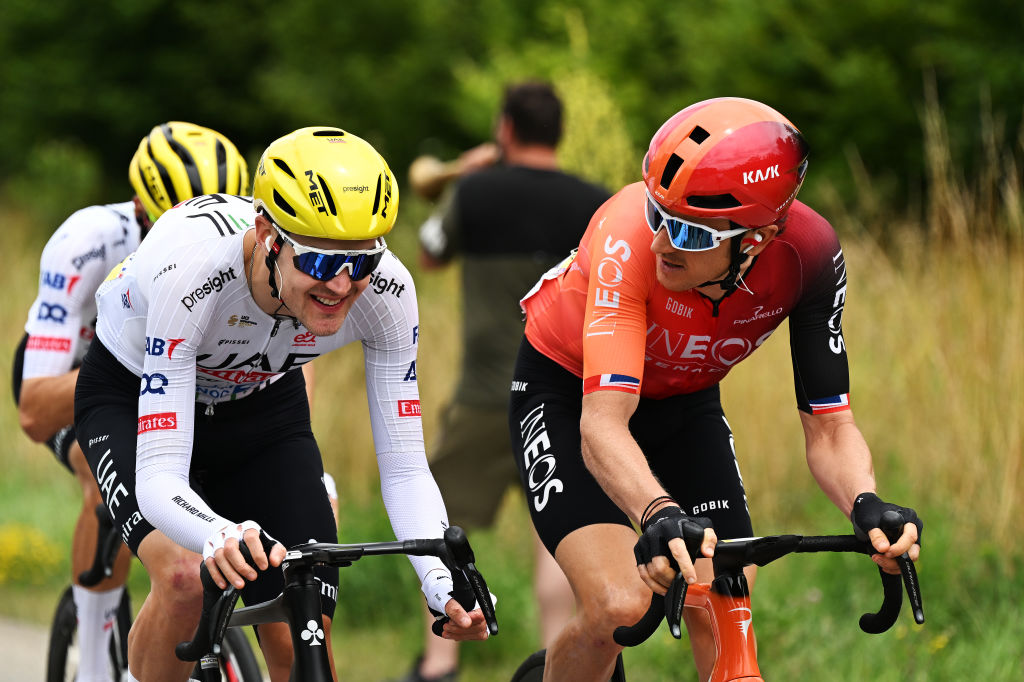
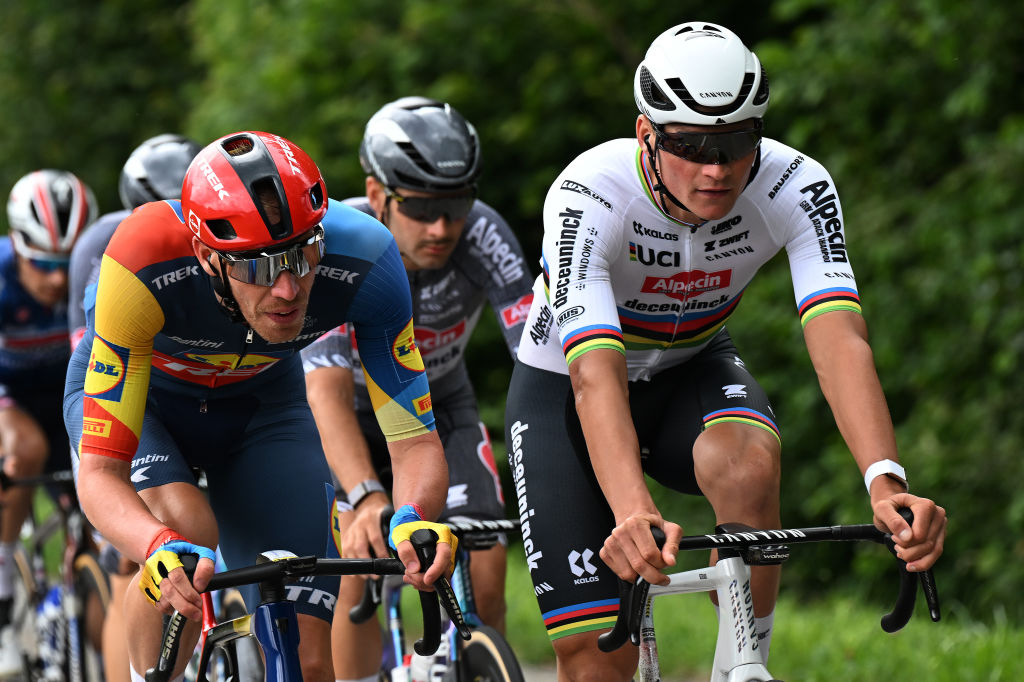
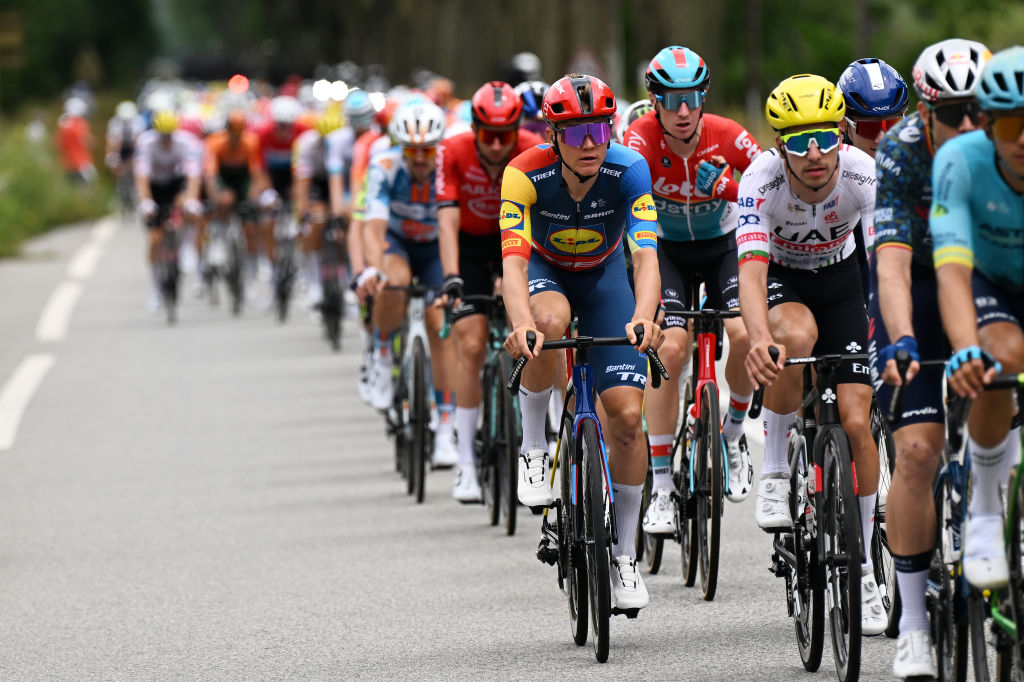
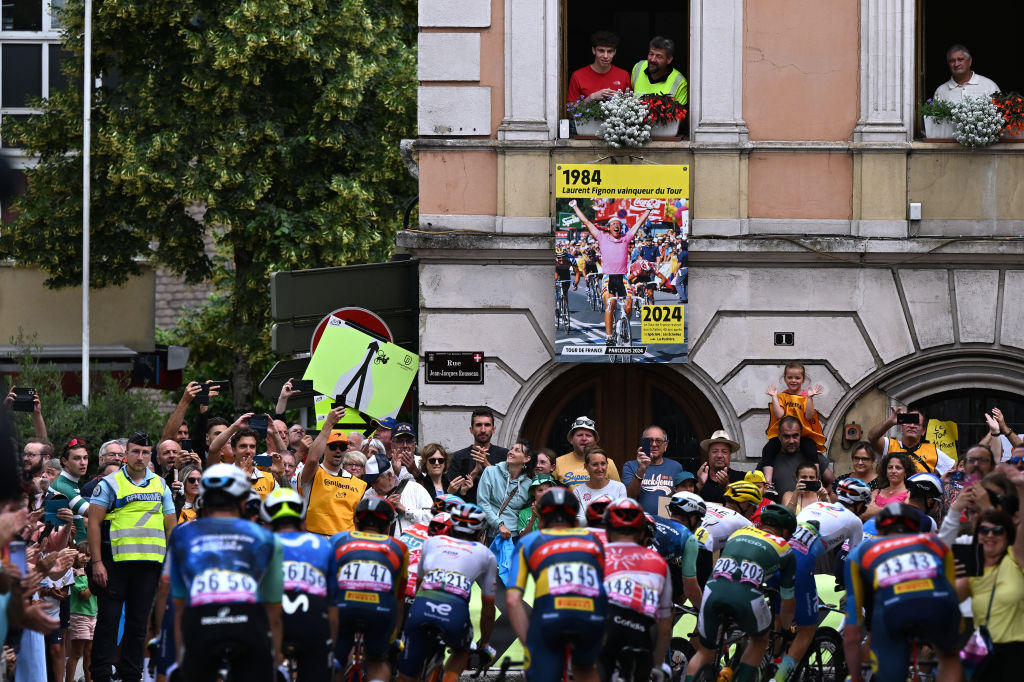
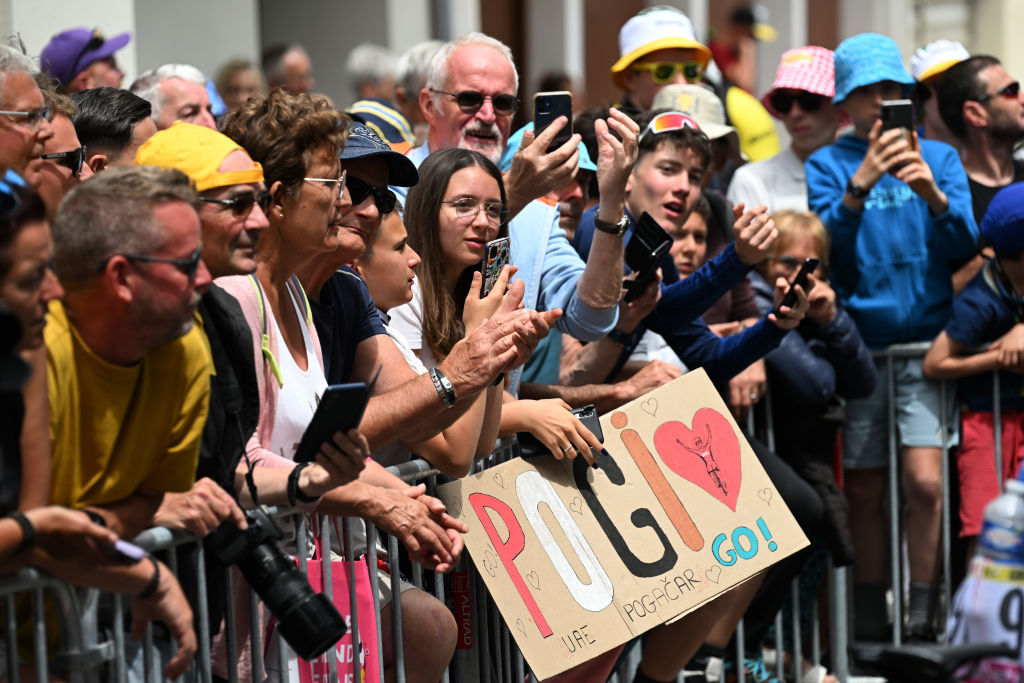
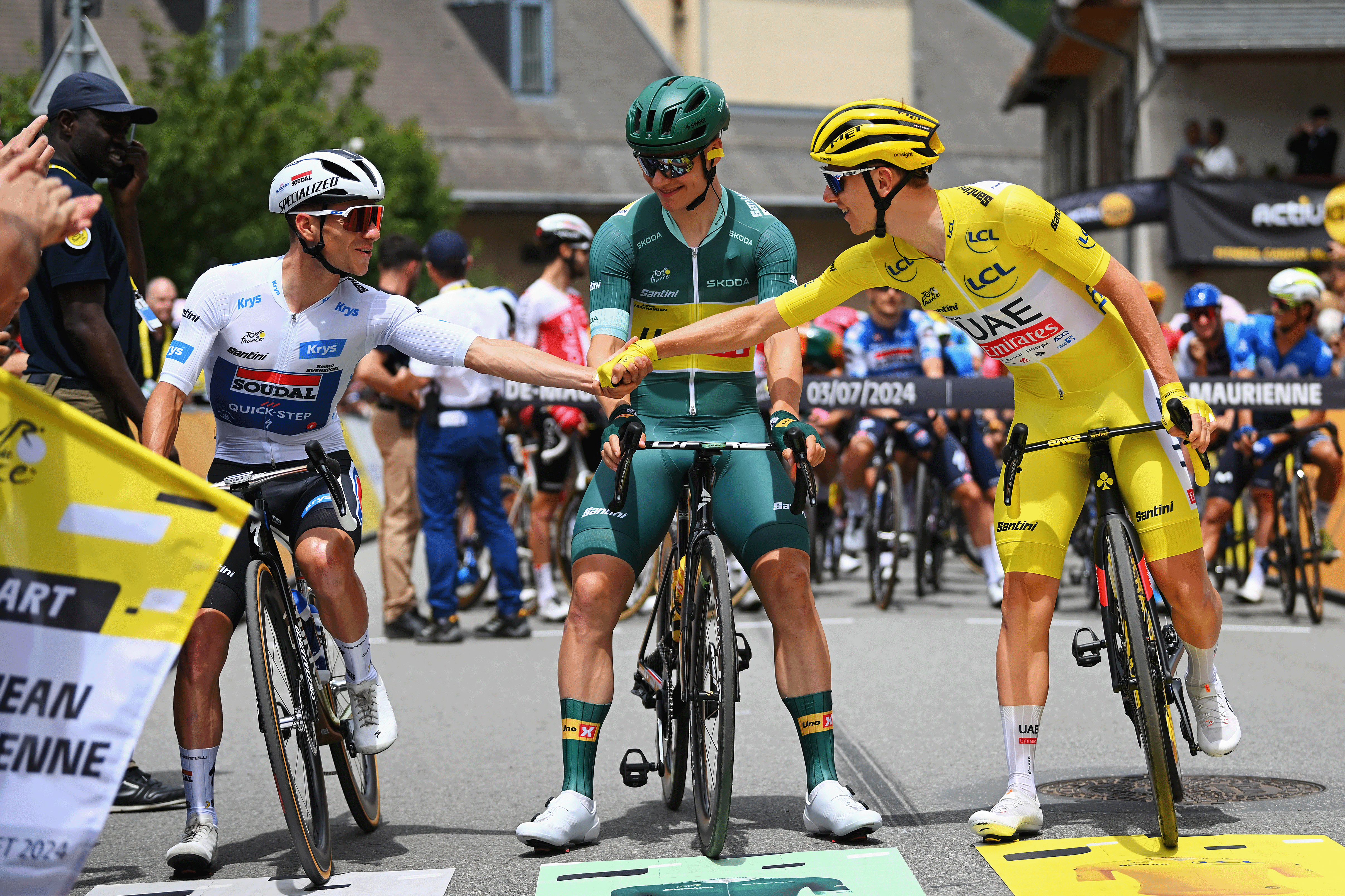
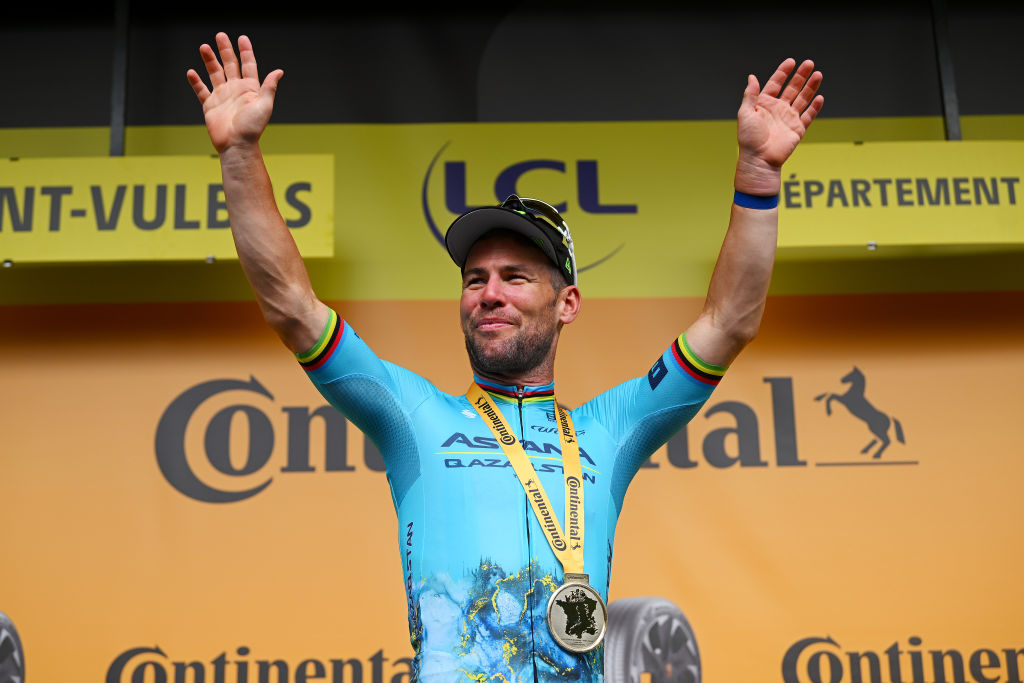
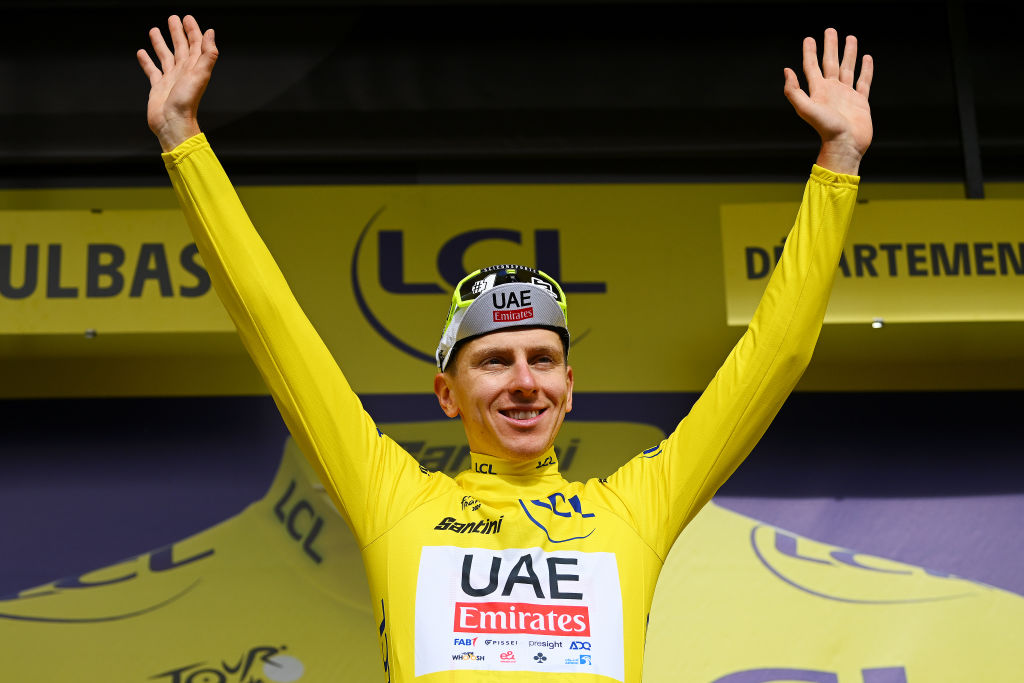
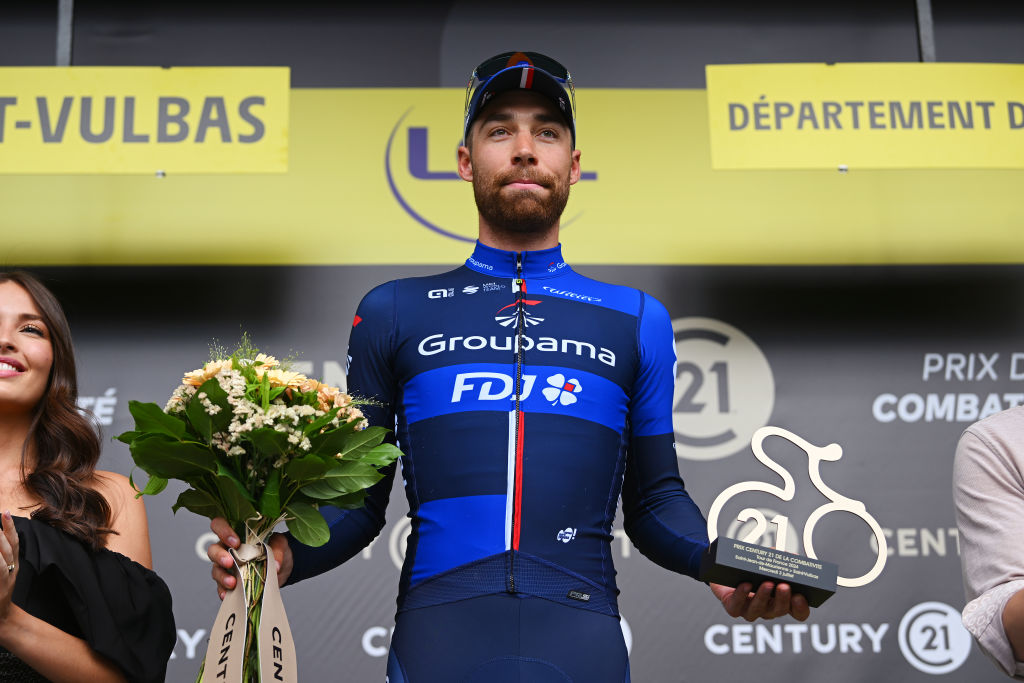
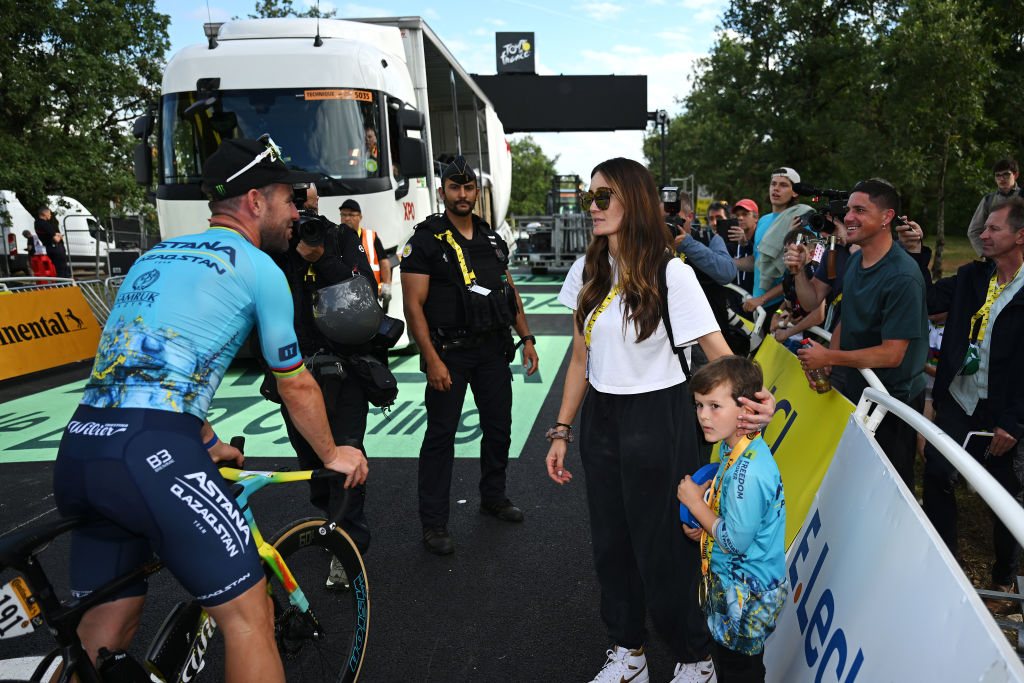
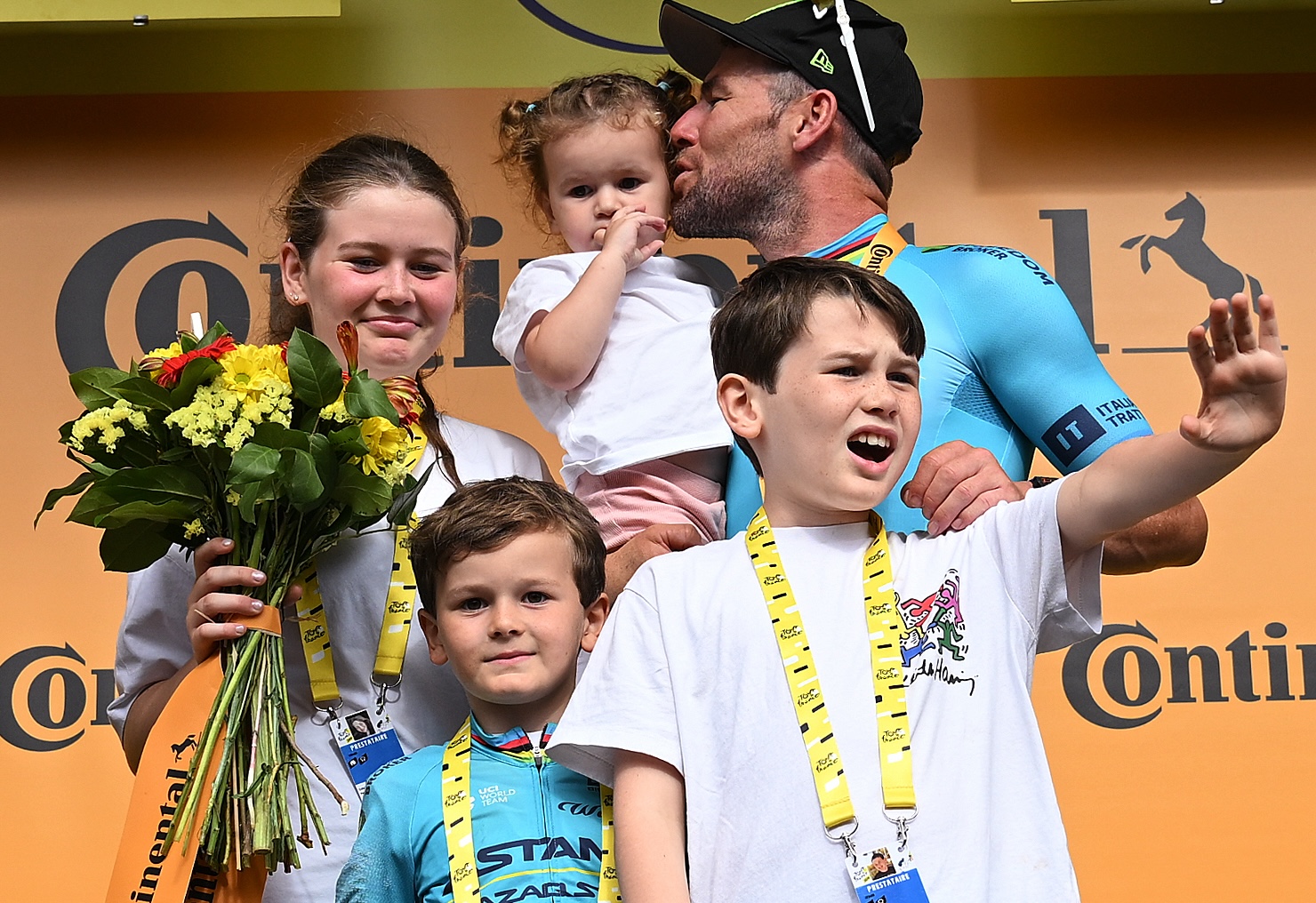
There was a time when Mark Cavendish stage victories at the Tour de France seemed to come about almost as a matter of routine, like the setting of the sun or the rising of the tides. The road to his record-breaking 35th victory was altogether more complicated, but that only heightened the emotion as the Manxman won stage 5 in Saint Vulbas on Wednesday afternoon.
The sprint finale was a chaotic one, as is so often the case in the modern Tour, but Cavendish has been imposing his order on situations like this since he was barely out of his teens. He delivered a rasping sprint to beat Jasper Philipsen (Alpecin-Deceuninck) and Alexander Kristoff (Uno-X Mobility) to the line, breaking the record he had shared with Eddy Merckx since 2021.
At 39 years of age, Cavendish surely cannot possess the same turn of pace that carried him to his first Tour win in Châteauroux back in 2008. He has, however, always been able to read the changing contours of a bunch sprint than anybody and find the most viable route to his goal, and that was key to his triumph here.
When Cavendish lost his lead-out man Michael Mørkøv in the run-in, he immediately found his bearings by attaching himself to Philipsen’s rear wheel. As the peloton hurtled into the finishing straight, however, he understood that the sands of the sprint were shifting, and he dived onto Pascal Ackermann’s wheel before striking out with a little over 100 metres to go.
Cavendish’s initial acceleration carried him a length clear, and he maintained his speed to the line, claiming a clear victory over Philipsen and Kristoff, his 35th on cycling’s grandest stage.
The Manxman had already equalled Merckx’s record on the 2021 Tour, when he snared four wins after earning a late call-up to QuickStep’s squad. He missed the chance to claim the record for himself when he was beaten on the Champs-Élysées, and it looked like the opportunity had passed him by altogether when he was omitted from the team’s selection for 2021.
Last year, after a tumultuous winter, Cavendish found a home at Astana and came agonisingly close to that elusive 35th win in what he had announced would be his final Tour. His crash and abandon on stage 8, however, convinced him to walk back that decision.
The 2024 Tour was to be his last dance, but despite victories on the Tour Colombia and the Tour of Hungary earlier this year, it was far from a given that he would add to his Tour tally. Cavendish’s prospects looked slenderer still when he suffered with heatstroke on the demanding opening stage of this race, reaching Rimini almost 40 minutes down.
Cavendish, of course, is never more dangerous than when the odds seem to be stacked against him. For the bones of sixteen years, one has been very ill advised to write off Cavendish, and the truism clearly still for this, his final Tour.
“I’m a little bit in disbelief,” Cavendish said. “Astana have put a big gamble on this year, to make sure we’re good on the Tour de France. We gambled coming in trying to win at least one stage and that’s a big gamble for my boss, Alex Vinokourov. It shows that an ex-bike rider knows what the Tour de France is. You have to go all-in.”
Cavendish’s flash interview was interrupted by an embrace from Vinokourov, whose Astana team has struggled to score UCI points over the past two seasons.
“You see what it means. OK, it doesn’t mean we’re going to be top of the UCI rankings or anything, but the Tour is bigger than cycling, isn’t it?” Cavendish said. “You know how much I owe this race, you know how much Vino owes this race.”
Tadej Pogačar (UAE Team Emirates) retains the yellow jersey after finishing safely in the peloton, though the Slovenian narrowly avoided coming down in a crash at a traffic island with a little under 60km to go. Pogačar remains 45 seconds clear of Remco Evenepoel (Soudal-QuickStep) in the overall standings, with Jonas Vingegaard (Visma-Lease a Bike) still third at 50 seconds.
The day belonged to Cavendish, however, who downplayed his travails on the opening stage in Italy.
“I don’t like to suffer, but I know it’s all in the head,” he said, adding that his sprint had been an off-the-cuff effort amid a very complicated finale.
“We didn’t nail it as a team like we wanted to do, but the boys improvised and got me there in the best position. When you’re not physically as good as everybody else, it’s definitely beneficial to use your head a bit.”
How it unfolded
After the remorseless intensity of Tuesday’s short stage over the Col du Galibier, there was a decidedly more relaxed feel to stage 5 from Saint-Jean-de-Maurienne. Like on Monday’s long run to Turin, which was also destined from the outset to end in a bunch sprint, the peloton was glad to call a temporary truce in the opening phase of stage 5.
When the flagged, there was no immediate response from the bunch, which was content to able along at a relatively sedate pace through the opening kilometres. At one point, Juan Ayuso (UAE Team Emirates) ghosted off the front in the company of compatriot Oier Lazkano (Movistar), seemingly by accident, while the peloton ambled along behind them.
A break worthy of the name eventually took shape 30km or so into the stage, when Clément Russo (Groupama-FDJ) clipped away, with Mattéo Vercher (TotalEnergies) bridging across to keep him company shortly afterwards.
The sprinters’ teams were all content with that scenario, and so the pattern for the day was set. The French duo would stretch their buffer out towards the five-minute mark after the time the race had passed through Chambery, by which point a coalition of sprinters’ teams had already set about gently whittling away at their advantage.
Russo led the over the category 4 Côte du Cheval Blanc, and he also led through the intermediate sprint at Aoste, where Mads Pedersen (Lidl-Trek) continued his green jersey campaign by beating Sam Bennett (Decathlon-AG2R), Biniam Girmay (Intermarché-Wanty) and Philipsen to third place.
By then, with a shade over 50km remaining, the break’s lead was down to just a minute, with the pace – and tension – in the peloton rising steadily. Indeed, shortly before the sprint, Pogačar narrowly avoided coming down in a crash as the peloton navigated a traffic island. Pello Bilbao (Bahrain Victorious) was among the fallers there, but mercifully the Basque quickly rejoined the fray.
The general nervousness of the situation was exacerbated still further by the rain that began to cascade gently over the peloton in the final hour of racing, with the GC teams massing towards the front ahead of the Côte de Lhuis, where Russo and Vercher were caught.
King of the mountains Jonas Abrahamsen (Uno-X Mobility) led the bunch over the summit. His team’s hopes of stage victory seemed to compromised over the other side, with Kristoff coming down in a crash with 27km remaining, but the Norwegian battled back to claim a fine third place on the day.
The combination of wet roads and repeated road furniture sparked another crash shortly afterwards, with Christophe Laporte (Visma-Lease a Bike) tumbling at low speed and, mercifully, without lasting consequence, as he chased back on before the high-speed run-in.
Arnaud De Lie’s Lotto-Dstny squad took control of affairs in the finale, hitting the front with 2km remaining, but no one team was going to be able to dictate the terms of a sprint like this. Uno-X and DSM later took up the reins in the final kilometre, but the expected lead-out masterclass from Mathieu van der Poel (Alpecin-Deceuninck) never materialised, with the World Champion getting squeezed against the right-hand barriers.
Cavendish had been tracking Philipsen’s rear wheel to that point, but he quickly realised that he would have to travel a different road to victory here. Not for the first time, that made all the difference.
Results
Results powered by FirstCycling
The latest race content, interviews, features, reviews and expert buying guides, direct to your inbox!

Barry Ryan was Head of Features at Cyclingnews. He has covered professional cycling since 2010, reporting from the Tour de France, Giro d’Italia and events from Argentina to Japan. His writing has appeared in The Independent, Procycling and Cycling Plus. He is the author of The Ascent: Sean Kelly, Stephen Roche and the Rise of Irish Cycling’s Golden Generation, published by Gill Books.
Latest on Cyclingnews
-
Amazon Prime Day bike deals: The sale is almost finished, this is your last chance to grab yourself a deal
Don't hang around, Amazon Prime Day is coming to an end but there are still some great deals available -
Where's the beef? The UAE-Visma Tour de France rivalry is intense but respectful so far
"UAE and Visma are perhaps the strongest teams but only one can win," says Mauro Gianetti -
'I wonder how they recover like that every day' – Mathieu van der Poel loses yellow jersey at Tour de France as Grand Tour fatigue sets in
Dutchman more than satisfied with performance in first seven stages despite getting dropped on return to Mûr-de-Bretagne -
'I don't know if I'm getting any closer to that win' – Oscar Onley best of the rest behind Pogačar and Vingegaard on Tour de France stage 7
World champion says young Scot has 'showed in the past already how a superb rider he is, with a punchy kick' after third place at Mûr-de-Bretagne



